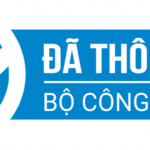- A Nation Responds: Examining the latest developments and breaking news in nigeria today 24/7, forging paths toward progress.
- Political Developments and Governance
- The Role of Civil Society
- Regional Security Concerns
- Economic Outlook and Diversification
- Impact of Global Economic Trends
- Financial Sector Stability
- Social Issues and Human Development
- Youth Empowerment and Employment
A Nation Responds: Examining the latest developments and breaking news in nigeria today 24/7, forging paths toward progress.
The flow of information in the modern world is relentless, and Nigeria is no exception. Staying informed about breaking news in nigeria today 24/7 is crucial for citizens, businesses, and anyone with an interest in the region. This article delves into recent developments, analyzing key events and exploring their potential impact on various facets of Nigerian life. From political shifts to economic trends and social issues, we aim to provide a comprehensive overview of the current landscape.
Nigeria, a nation of immense diversity and complexity, frequently finds itself at the center of significant events. Understanding these events requires diligent reporting and thoughtful analysis. This examination will not just present the facts but also attempt to contextualize them, providing readers with a deeper understanding of the forces shaping the nation’s trajectory. We’ll focus on key areas, ensuring a thorough, balanced, and informative update for our audience.
Political Developments and Governance
Recent political happenings in Nigeria have been marked by both stability and emerging challenges. The current administration continues to navigate complex issues relating to security, infrastructure, and economic diversification. Debates surrounding electoral reform and constitutional amendments remain prominent, reflecting a desire for a more robust and representative governance system. Ongoing dialogues involving both government entities and civil society organizations are shaping the future political discourse.
Legislative activities are focused on key bills aimed at addressing issues like unemployment, poverty reduction, and improved access to education. The effectiveness of these initiatives will be critical in fostering sustainable development. Simultaneously, there are discussions on strengthening institutions and tackling corruption, which remains a significant impediment to progress. The interplay of these factors will define the political landscape in the coming months.
| Electoral Reform | Bill under review in the National Assembly | Increased transparency and voter participation |
| Constitutional Amendment | Ongoing public consultations | Potential changes to the structure of governance |
| Anti-Corruption Efforts | Increased investigations and prosecutions | Improved public trust and economic stability |
The Role of Civil Society
Civil society organizations play a pivotal role in holding the government accountable and advocating for the rights of citizens. These organizations actively engage in monitoring elections, promoting good governance, and providing essential services to vulnerable communities. Their independent voices are vital for ensuring transparency and fostering inclusivity in decision-making processes. Effective collaboration between government and civil society is crucial for addressing the challenges facing Nigeria. There’s a rising trend of localization and more community-based initiatives.
However, these organizations often face limitations, including funding constraints and restrictions on their activities. Ensuring their operational independence and providing space for constructive engagement are essential for a thriving democracy. Furthermore, promoting greater public awareness of the role of civil society can empower citizens to participate more actively in shaping their own destinies. The commitment to protecting fundamental freedoms remains a cornerstone of a healthy political environment.
Regional Security Concerns
Security challenges persist in several regions of Nigeria, including the ongoing conflict in the North-East and rising instances of banditry in the North-West. Addressing these issues requires a multifaceted approach, encompassing military action, intelligence gathering, and socio-economic development initiatives. The government is working with international partners to strengthen security capabilities and address the root causes of instability. The involvement of multinational forces and the sharing of intelligence are key components of these efforts.
The humanitarian crisis resulting from these conflicts remains a major concern, with millions of people displaced and in need of assistance. Providing adequate support to internally displaced persons (IDPs) and refugees is essential for alleviating suffering and promoting long-term recovery. Furthermore, fostering reconciliation and addressing the underlying grievances that fuel conflict are crucial for building sustainable peace. A comprehensive strategy that addresses both immediate needs and long-term solutions is vital.
Economic Outlook and Diversification
Nigeria’s economy is heavily reliant on oil revenue, making it vulnerable to fluctuations in global oil prices. Diversifying the economy and promoting non-oil sectors such as agriculture, manufacturing, and technology are crucial for achieving sustainable growth and creating employment opportunities. The government has implemented various policies aimed at attracting foreign investment, improving infrastructure, and fostering an enabling business environment.
However, challenges such as inadequate infrastructure, corruption, and policy inconsistencies continue to hinder economic progress. Addressing these obstacles requires sustained efforts to improve governance, strengthen institutions, and promote transparency. Furthermore, investing in human capital development and fostering an innovative ecosystem are essential for long-term economic competitiveness. Strategic reforms will be crucial in navigating the evolving global economic landscape.
- Agriculture: Investing in modern farming techniques and value chain development.
- Manufacturing: Promoting local production and reducing reliance on imports.
- Technology: Fostering a thriving startup ecosystem and attracting tech investment.
- Infrastructure: Addressing infrastructure deficits in power, transportation and communications.
Impact of Global Economic Trends
Global economic trends, such as rising inflation and supply chain disruptions, are impacting Nigeria’s economy. The increasing price of essential commodities is putting pressure on household budgets and exacerbating poverty. The government is implementing measures to mitigate these effects, including providing subsidies and social safety nets. However, the long-term solution lies in strengthening the domestic economy and reducing dependence on imports. Proactive measures are necessary to cushion the impact of external shocks.
The ongoing geopolitical tensions and trade disputes are also creating uncertainty in the global economy. Nigeria needs to diversify its trade partnerships and explore new markets to mitigate these risks. Furthermore, strengthening regional cooperation within Africa can provide opportunities for increased trade and investment. Resilient economic policies and strategic adaptations are crucial for navigating these complex challenges and ensuring sustainable growth.
Financial Sector Stability
The Nigerian financial sector has demonstrated resilience in recent years, but it remains vulnerable to external shocks and domestic challenges. The Central Bank of Nigeria (CBN) has implemented various measures to maintain financial stability, including regulating banks, managing inflation, and promoting financial inclusion. Efforts to strengthen the regulatory framework and enhance risk management practices are ongoing. A sound and stable financial system is essential for supporting economic growth and attracting investment.
However, challenges such as high levels of non-performing loans and limited access to credit remain a concern. Improving credit risk assessment, promoting responsible lending practices, and enhancing financial literacy are crucial for addressing these issues. Furthermore, leveraging technology to expand access to financial services, particularly for small and medium-sized enterprises (SMEs), can unlock significant economic potential. Continued vigilance and proactive risk mitigation are vital for safeguarding the stability of the financial system.
| GDP Growth Rate | 3.1% | Positive (slow recovery) |
| Inflation Rate | 21.82% | Increasing |
| Exchange Rate (USD/NGN) | 463.75 | Fluctuating |
Social Issues and Human Development
Nigeria faces a range of social challenges, including poverty, unemployment, and limited access to education and healthcare. Addressing these issues requires comprehensive strategies that target the root causes of inequality and promote inclusive growth. The government has launched various social intervention programs aimed at providing support to vulnerable populations. Investing in human capital development is essential for empowering citizens and fostering a more equitable society. Furthermore, promoting gender equality and empowering women are crucial for unlocking Nigeria’s full potential.
The impact of climate change is also becoming increasingly evident in Nigeria, with rising temperatures, changing rainfall patterns, and increased frequency of extreme weather events. Addressing climate change requires both mitigation and adaptation measures. Promoting sustainable agriculture, investing in renewable energy, and implementing disaster preparedness plans are essential for building a more resilient future. Collaborative efforts involving government, civil society, and the private sector are crucial for tackling these complex challenges.
- Education: Increasing access to quality education at all levels
- Healthcare: Improving healthcare infrastructure and access to affordable healthcare services
- Poverty Reduction: Implementing social intervention programs to support vulnerable populations
- Infrastructure Development: Investing in critical infrastructure – power, transport, water.
Youth Empowerment and Employment
Nigeria has a large and growing youth population, representing a significant demographic dividend. However, high unemployment rates, particularly among young people, pose a major challenge. Creating employment opportunities and empowering young entrepreneurs are crucial for harnessing this potential. Investing in skills development, promoting entrepreneurship, and providing access to finance are essential for fostering youth empowerment. Creating an enabling environment for startups and small to medium-sized enterprises can unlock significant economic opportunities for young people.
Addressing the skills gap and aligning education and training programs with the needs of the labor market are also vital. Strengthening vocational training, promoting apprenticeships, and fostering partnerships between educational institutions and the private sector can enhance the employability of young people. Furthermore, creating a culture of innovation and entrepreneurship can empower young people to become job creators rather than job seekers. Investing in young people is an investment in Nigeria’s future.



